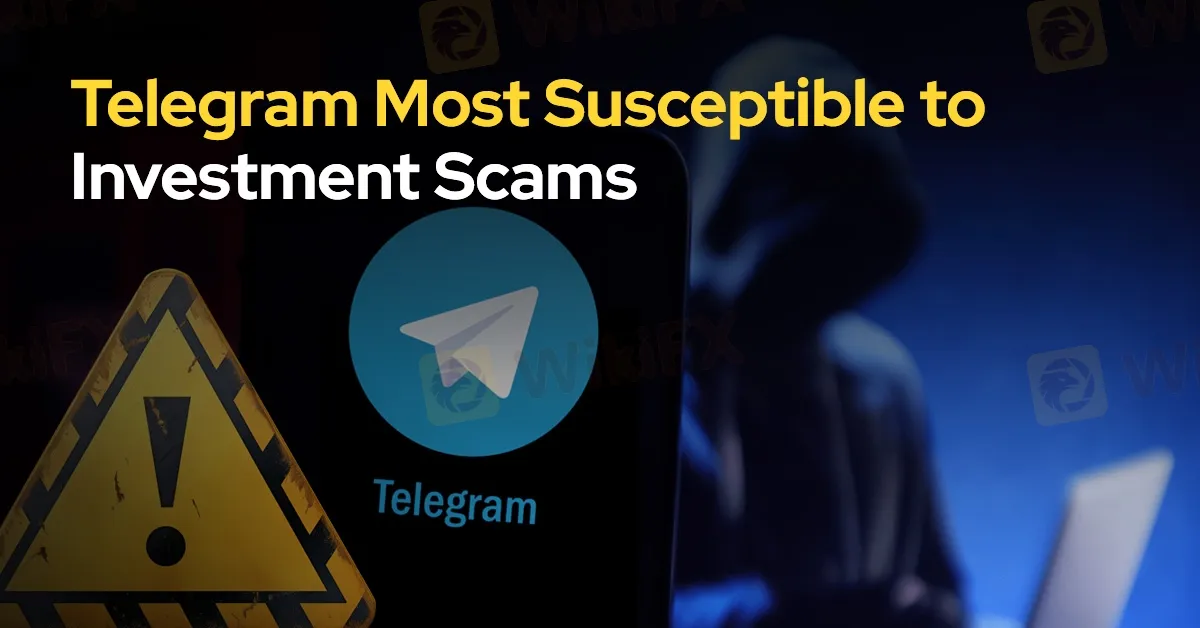简体中文
繁體中文
English
Pусский
日本語
ภาษาไทย
Tiếng Việt
Bahasa Indonesia
Español
हिन्दी
Filippiiniläinen
Français
Deutsch
Português
Türkçe
한국어
العربية
Telegram Most Susceptible to Investment Scams
Abstract:Investment scam syndicates are increasingly exploiting Telegram as their platform of choice to deceive unsuspecting victims in Malaysia

Investment scam syndicates are increasingly exploiting Telegram as their platform of choice to deceive unsuspecting victims, according to Malaysias Bukit Aman Commercial Crime Investigation Department (CCID) director, Datuk Seri Ramli Mohamed Yoosuf. He revealed that Telegram was involved in 1,455 cases, accounting for 34.6% of total investment scam incidents reported in 2024.
Following Telegram, other platforms frequently targeted by these syndicates included Facebook and WhatsApp, with 1,035 and 958 cases, respectively. In addition, some scams were orchestrated through platforms like Instagram, websites, dating sites, Line, WeChat, and phone calls, although these channels were used less often.
Between January and September 22, 2024, a total of 4,205 investment scams were reported, resulting in RM526.97 million in financial losses. While Telegram emerged as the most widely used platform with losses estimated at RM32 million, WhatsApp scams caused the highest monetary damage, leading to losses of RM175.5 million. Facebook scams followed closely, resulting in RM159.5 million in losses. Authorities cautioned the public to remain vigilant when using these platforms, noting that many investment schemes presented through these channels are not verified.

Beyond online platforms, investment scam syndicates frequently exploit company-registered bank accounts to facilitate transactions, taking advantage of the ability to process large sums of money without triggering suspicion. According to the CCID, 1,369 bank accounts from 487 mule companies were linked to scams this year. These mule companies are often led by financially distressed individuals who are recruited through social media and persuaded to become directors in exchange for commissions.
Once onboarded, these individuals are instructed to open bank accounts under the names of newly registered companies and transfer control of these accounts to the scam syndicates. In return, they receive commissions. Datuk Seri Ramli urged job seekers to be cautious of offers that appear too attractive, particularly those offering the position of company director, as such roles could entangle them in serious criminal activities.
On a related note, Telegram‘s CEO, Pavel Durov, recently announced new security measures to combat illegal activities on the platform. Telegram will now share users’ IP addresses and phone numbers with authorities in cases involving criminal activity identified through its search feature. Additionally, the platform is enhancing moderation through artificial intelligence and human oversight, while encouraging users to report illicit content. Despite these measures, Durov reaffirmed Telegram's commitment to user privacy, emphasizing features such as disappearing messages and end-to-end encryption, while ensuring that user messages will never be shared with third parties.

Disclaimer:
The views in this article only represent the author's personal views, and do not constitute investment advice on this platform. This platform does not guarantee the accuracy, completeness and timeliness of the information in the article, and will not be liable for any loss caused by the use of or reliance on the information in the article.
Read more

TriumphFX Rebrands to Continue Global Fraud: Over RM80 Million Lost
The notorious forex investment company TriumphFX, previously exposed for running a global scam operation for over a decade, is now being accused of rebranding itself to continue defrauding unsuspecting investors. Despite being unregulated and based offshore in Seychelles, TriumphFX has actively targeted Malaysian investors, luring them with false promises and eventually converting funds into cryptocurrency, making recovery nearly impossible.

Vantage Markets Review 2025: Trusted Forex and CFD Trading Since 2009
Explore our 2025 Vantage Markets review! A trusted Sydney-based broker since 2009, offering forex, CFDs, low spreads, global regulation, and 24/7 support. Trade from $50!

IronFX vs Exness Review 2025: Comprehensive Broker Comparison
Explore an in-depth comparison between IronFX and Exness. Compare licensing, features, regulation, trading platforms, and customer service for smarter trading decisions.

TriumphFX Faces 29 Exposure Reviews on WikiFX
TriumphFX faces scrutiny with 29 exposure reviews on WikiFX, revealing regulatory warnings from ID BAPPEBTI, VU VFSC, SG MAS, and MY SCM, plus user complaints about withdrawal issues and fraud concerns.
WikiFX Broker
Latest News
How much money will you earn by investing in Vantage Broker?
IronFX vs Exness Review 2025: Comprehensive Broker Comparison
Fraudsters Are Targeting Interactive Brokers' Users with Lookalike Emails
Everything you need to know about ADSS
SkyLine Guide 2025 Malaysia: 100 Esteemed Judges Successfully Assembled
Vantage Markets Review 2025: Trusted Forex and CFD Trading Since 2009
Top Tips to Choose the Best Forex Broker in 2025
SEBI Notifies New F&O Rules for Investors - New Derivative Trading Limits & More Amendments
Interactive Brokers: Global Office Visits and Licensing Details
U.S. Jobs Data Released: A Potential Boost for Gold Prices
Currency Calculator


